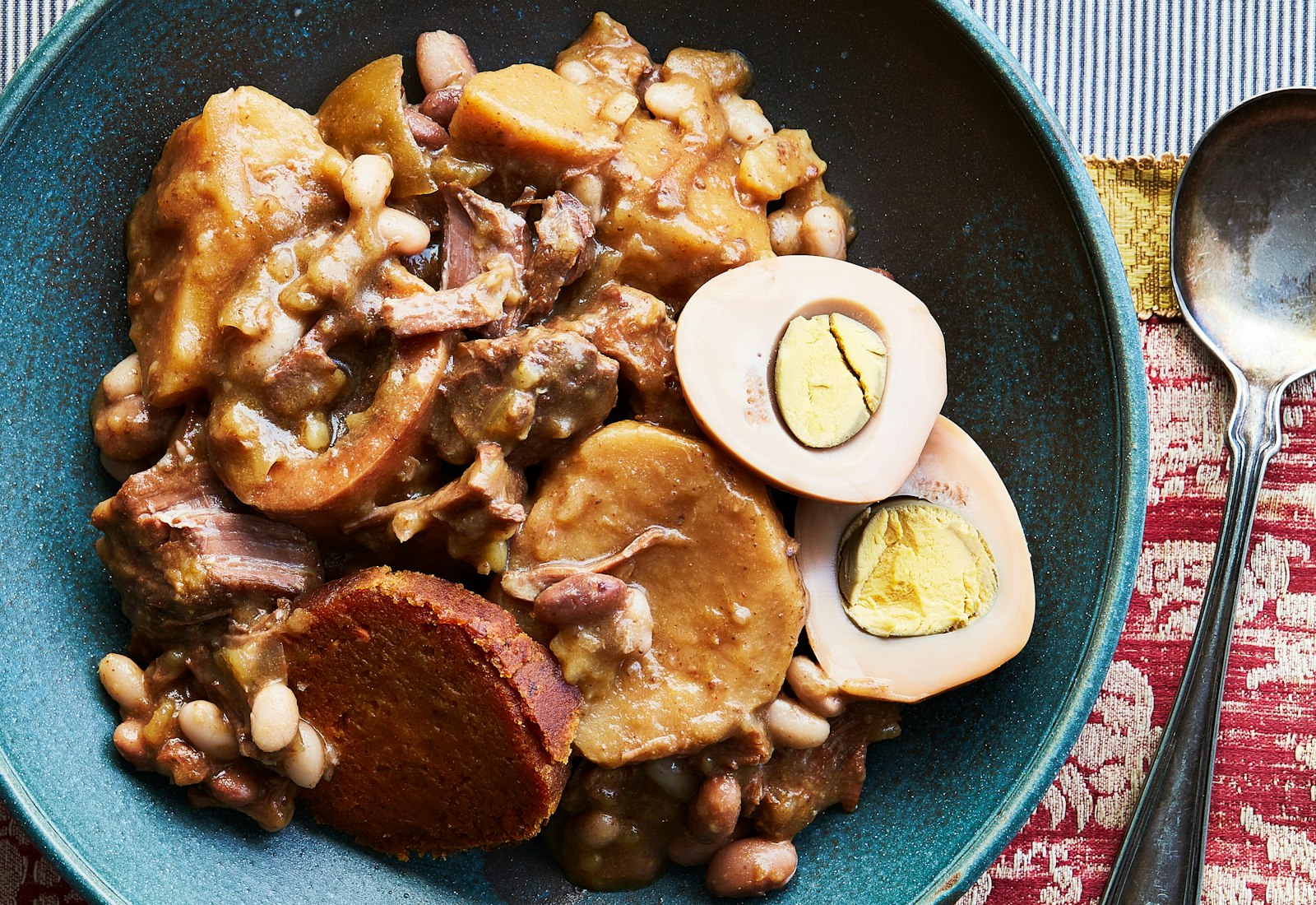Shared by David Lenga


Auschwitz-Birkenau survivor David Lenga shared this cholent recipe and story in "Honey Cake & Latkes: Recipes from the Old World by the Auschwitz-Birkenau Survivors." It is reprinted here with permission of the Auschwitz Birkenau Memorial Foundation.
To have cholent in a Yiddish home, in prewar Poland, in Lodz, was a must. There was no Shabbat without the cholent. It’s just the way it was. Everybody looked forward to it. It was the taste of heaven. When I was a ten or eleven year old boy, my mother would put all the cholent ingredients into a black cast-iron pot. She would wrap it around very tight with paper and then with string. She would wrap it hermetically tight. She would put a lid on it and then give it to me — the oldest boy — to go to the neighborhood bakery.
The bakery would put it in his oven and give you the top part of a ticket. Part of the ticket with the number would go on the cholent, and the other part you would hold on to and redeem your food later.
And so I went every Friday before Shabbat to the baker to take the cholent for the family. All the other Jews were doing the same thing. There were hundreds of people lined up outside of the baker’s story: the whole neighborhood. Everybody did it.
Cooking note: This cholent recipe calls for kishke, a rich, stuffed derma, which is increasingly hard to source. Look for it at kosher grocery stores, butchers, or delis. You can also omit the kishke from this recipe.
Try David's recipe for blueberry stonekes and explore more recipes from other Holocaust survivors in "Recipes from the Kitchens of Holocaust Survivors."
Place the beans into the bottom of a large pot and cover with several inches of water. (The beans will double in size as they soak, so make sure to use plenty of water.) Boil for 5 minutes, then remove the pot from the heat. Let soak for 1 hour, then drain and rinse well before proceeding with the recipe.
Make the stew: In a large slow cooker place the potatoes in a single layer on the bottom of then sprinkle the onions on top. Place the beef in a single layer on top of the onions and add the marrow bones. Add kishke, if using.
Rinse the beans, removing any stones or impurities. If using barley or kasha, rinse the grains as well. Spread the beans and grains evenly over the meat. Tuck the garlic cloves into the meat, spacing them evenly, and sprinkle with black pepper. If using eggs, rinse the shells thoroughly and place them into the pot.
Pour the broth into a large bowl and whisk in the salt, paprika, turmeric, cumin, and cayenne. Pour the seasoned liquid over the cholent, adding additional water — about 1 cup — just until the beans and meat are barely covered.
Cover the slow cooker and cook on low for 16–18 hours, checking occasionally and adding water if the mixture appears dry. When the meat is tender and cooking is complete, switch the cooker to “warm” until ready to serve. Peel the eggs (if using) before serving. Leftover cholent can be stored in an airtight container in the refrigerator for up to 3–4 days.